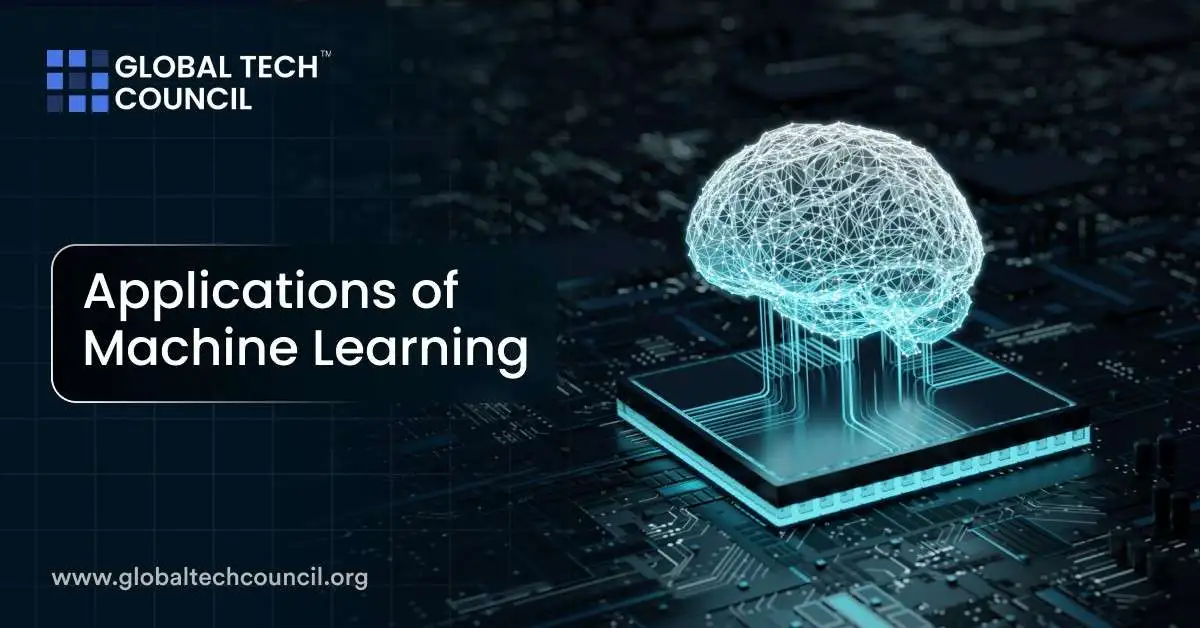Machine learning is applied in many fields and keeps developing, bringing new solutions to different sectors.
What is Machine Learning?
Machine learning is about training systems to understand data and make choices or guesses without direct programming. It is a part of artificial intelligence (AI) focused on creating algorithms that let systems learn and get better from experiences.
Uses of Machine Learning
Social Media Features
If you’re on social media, you’re already interacting with machine learning often. Platforms like Facebook, Instagram, and TikTok study user actions to personalize your feed. When you get a suggestion to connect with someone or view a specific post, machine learning is working. These platforms collect data about your activity, like the posts you like, comment on, or the time you spend on them. They use this information to guess what content you’ll like and show it to you. This makes your experience more engaging by offering things that match your interests.
Product Suggestions
Machine learning is widely used in online shopping. Sites like Amazon and Netflix suggest products or shows based on what you’ve searched for, clicked on, or bought before. These recommendation systems compare your behavior with other users’ data to find products or content that suits your preferences. For example, if you’ve bought camping gear on Amazon, you might see suggestions for water bottles or backpacks. The system gets better at understanding what you like over time, providing a more tailored shopping experience.
Image and Voice Recognition
Machine learning helps a lot in recognizing images and voices. For images, it’s used in different areas, from detecting diseases in medical images to identifying people or objects in your photos. Apps such as Google Photos use this tech to organize images based on faces or items. Similarly, voice recognition is common in assistants like Siri and Alexa. These systems understand spoken commands, letting you control devices hands-free. For example, asking Alexa to play music or telling Siri to send a text involves machine learning that turns speech into actions.
Fraud Prevention
One important use of machine learning is in fraud prevention, especially for banks and financial services. Companies including PayPal and Capital One apply machine learning to identify questionable activities. These models scan through vast transaction data to detect irregular patterns and notify for potential fraud. For example, if someone tries to use a credit card in a way that doesn’t fit the usual behavior, the system flags it. This helps prevent losses while allowing genuine transactions to go through smoothly.
Sentiment Analysis
Sentiment analysis is particularly helpful in areas like marketing and customer service. It involves studying text, such as reviews or social media posts, to understand the emotion behind the words. Businesses like Hootsuite use machine learning to assess public feedback on their products or services. By knowing whether feedback is positive, neutral, or negative, businesses can change their strategies accordingly. For example, if a product receives a lot of negative feedback, the company may choose to make improvements.
Healthcare and Medical Diagnosis
Machine learning has greatly influenced healthcare by helping with diagnosis and treatment planning. Models can analyze complex medical data, assisting doctors in making better decisions. For instance, Google Health has created tools that predict health issues by examining medical histories and images. Some hospitals also use machine learning to predict wait times in emergency rooms, helping improve efficiency and patient satisfaction.
Natural Language Processing (NLP)
Natural Language Processing helps computers comprehend and interpret human languages. Applications like Google Translate and Grammarly use NLP to translate text or check grammar in real-time. These models don’t just translate word-for-word; they ensure that the translation keeps the correct meaning and context. In customer service, chatbots with NLP handle common questions. This reduces the need for human agents.
Self-Driving Vehicles
Self-driving cars are an advanced use of machine learning. Companies like Tesla and Waymo are leading this development. These vehicles rely heavily on machine learning. These cars use sensors and cameras to collect information from their surroundings, which is then used by the model to make driving decisions. For example, they can detect obstacles, predict traffic, and navigate roads without human input. As more data is gathered, the models improve in accuracy and reliability.
Predictive Maintenance in Industry
In manufacturing, predictive maintenance uses machine learning to foresee when equipment might break down, allowing repairs before failure occurs. Companies like GE use machine learning to keep track of machinery in real-time. By analyzing past data, like temperature or vibration levels, machine learning models spot patterns indicating potential issues, helping reduce downtime and maintenance costs.
Language Translation
Machine learning has transformed real-time language translation. Apps like Google Translate use advanced models to provide accurate translations. When translating, these systems don’t just convert words—they consider the entire sentence to make sure the translation makes sense. This is particularly useful for travelers or businesses working with global clients.
Final Thoughts
Machine learning continues to spread, providing practical applications in various sectors. Its uses, from finance to healthcare, show its potential to influence many areas. As technology progresses, we can expect more advanced machine learning tools to become available, expanding its role and impact.
